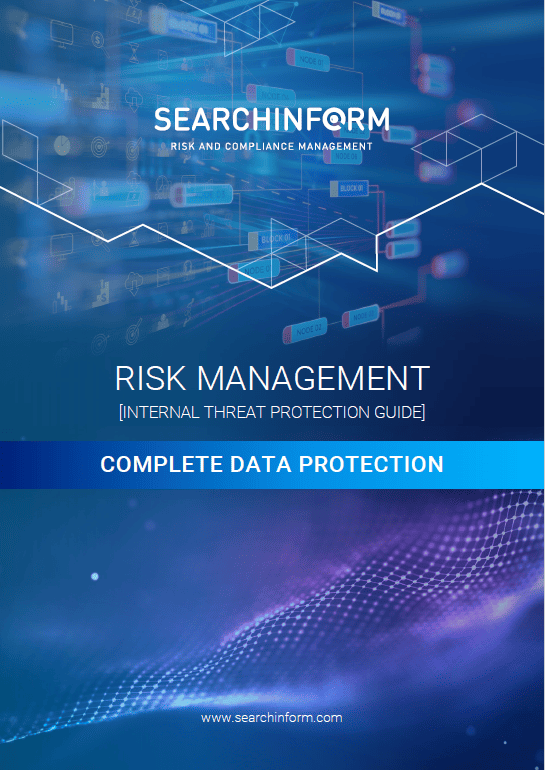Why Is Data Protection Important?
- Understanding Data Protection
- Benefits of Data Protection
- Risks of Poor Data Protection
- Key Elements of Effective Data Protection
- Robust Access Controls
- Encryption: The Guardian of Data
- Regular Audits and Monitoring
- Employee Training and Awareness
- Data Backup and Recovery
- Compliance with Regulations
- Incident Response Planning
- Secure Network Infrastructure
- Legal and Regulatory Compliance:A Cornerstone of Data Protection
- Navigating the Complex Landscape of Data Regulations
- The Role of GDPR: Setting the Global Standard
- CCPA: Protecting Consumer Privacy
- The Financial Implications of Non-Compliance
- Building Trust Through Compliance
- Implementing Comprehensive Compliance Programs
- The Role of Data Protection Officers
- The Future of Data Protection Regulations
- Common Threats to Data Security
- Cyber Attacks: The Ever-Present Danger
- Insider Threats: The Hidden Danger Within
- Phishing Attacks: Deceptive and Destructive
- Ransomware: Holding Data Hostage
- Data Breaches: The High Cost of Inadequate Protection
- Social Engineering: Manipulating Human Behavior
- Weak Passwords: An Open Door to Hackers
- Unpatched Software: Exploiting Vulnerabilities
- Mobile Device Security: Protecting Data on the Go
- The Growing Threat of IoT Devices
- Best Practices for Data Protection
- Establishing a Robust Data Protection Policy
- Implementing Strong Access Controls
- Data Encryption: A Critical Defense Mechanism
- Regular Data Backups
- Employee Training and Awareness Programs
- Multi-Factor Authentication (MFA)
- Secure Network Architecture
- Implementing Data Loss Prevention (DLP) Solutions
- Regular Security Audits and Assessments
- Incident Response Planning
- Utilizing Cloud Security Best Practices
- Staying Informed About Emerging Threats
- How SearchInform Can Help
- Comprehensive Data Loss Prevention (DLP) Solutions
- Incident Lifecycle Management: From Detection to Resolution
- Advanced Threat Detection and Response
- Enhancing Network Security
- Employee Monitoring and Insider Threat Detection
- Compliance with Legal and Regulatory Requirements
- Data Encryption and Secure Storage
- User-Friendly Interface and Customizable Solutions
- Continuous Improvement and Support
- Building a Culture of Security Awareness
- Use Case Scenario: Strengthening Data Security in Retail with SearchInform
- Background
- Challenges
- Implementation of SearchInform Solutions
- Data Loss Prevention (DLP)
- Incident Lifecycle Management
- Advanced Threat Detection and Response
- Employee Monitoring and Insider Threat Detection
- Compliance Management
- Results
- Conclusion
In today's digital era, the importance of data protection cannot be overstated. Every organization, regardless of size, handles sensitive information daily, from customer details to proprietary business data. The significance of safeguarding this data transcends mere compliance with regulations; it’s about maintaining trust and ensuring the business’s longevity. Data protection importance lies in its ability to shield companies from financial losses, reputational damage, and legal repercussions.
Understanding Data Protection
To grasp why data protection is crucial, one must first understand what it entails. Data protection encompasses a range of practices and technologies designed to secure sensitive information from unauthorized access, alteration, or destruction. These measures include encryption, access controls, and regular audits. By implementing robust data protection strategies, organizations can ensure that their data remains confidential, integral, and available when needed. The importance of data protection is rooted in its role as the foundation of a secure digital environment.
Benefits of Data Protection
The benefits of data protection are manifold. Firstly, it fosters customer trust. When customers know their personal information is safeguarded, they are more likely to engage with a business. Additionally, robust data protection minimizes the risk of data breaches, which can be financially devastating. It also ensures compliance with various data protection regulations, avoiding costly fines and legal issues. Furthermore, a strong data protection framework can enhance operational efficiency by preventing data loss and ensuring business continuity. The importance of data protection is clear when considering these benefits, which collectively strengthen an organization’s overall resilience.
Risks of Poor Data Protection
Neglecting data protection can lead to significant risks. A primary concern is data breaches, which can result in substantial financial losses and damage to an organization’s reputation. Customers are unlikely to trust a company that has a history of poor data security, potentially leading to a loss of business. Additionally, failure to comply with data protection regulations can result in hefty fines and legal challenges. Poor data protection can also disrupt business operations, causing downtime and loss of productivity. Understanding the data protection importance highlights that the risks of inadequate measures can far outweigh the costs of implementing robust security practices.
The importance of data protection is evident across various facets of business operations. From building customer trust to ensuring compliance and operational efficiency, protecting data is a critical component of modern business strategy. Neglecting this aspect can lead to severe consequences, making it essential for organizations to prioritize and invest in robust data protection measures.
Key Elements of Effective Data Protection
Robust Access Controls
One of the cornerstones of effective data protection is the implementation of robust access controls. By limiting who can access sensitive information, organizations can significantly reduce the risk of data breaches. Access controls ensure that only authorized personnel have the ability to view or modify critical data. This not only enhances security but also maintains the integrity and confidentiality of the information. The importance of data protection becomes evident when access controls are in place, providing a first line of defense against unauthorized access.
Encryption: The Guardian of Data
Encryption stands as a powerful tool in the realm of data protection. It converts data into a code to prevent unauthorized access, ensuring that even if data is intercepted, it remains unreadable without the proper decryption key. The importance of data protection is highlighted by encryption’s ability to safeguard data both at rest and in transit. This method is essential for protecting sensitive information, such as financial records and personal data, from potential cyber threats.
Regular Audits and Monitoring
To maintain the efficacy of data protection measures, regular audits and continuous monitoring are crucial. Audits help identify vulnerabilities and ensure compliance with data protection policies and regulations. Continuous monitoring, on the other hand, allows organizations to detect and respond to suspicious activities in real-time. The importance of data protection is underscored by these practices, as they help maintain a proactive stance against potential threats and ensure ongoing security.
Employee Training and Awareness
An often-overlooked aspect of data protection is employee training and awareness. Human error is a leading cause of data breaches, making it vital to educate employees on data protection best practices. Regular training sessions and awareness programs can equip staff with the knowledge to recognize phishing attempts, manage passwords effectively, and follow proper data handling procedures. The importance of data protection is reinforced by an informed workforce that can act as the first line of defense against data breaches.
Data Backup and Recovery
Data backup and recovery strategies are integral components of a comprehensive data protection plan. Regular backups ensure that data can be restored in the event of a breach, hardware failure, or other incidents that result in data loss. A well-designed recovery plan minimizes downtime and ensures business continuity. The importance of data protection is evident in the ability to swiftly recover from data loss events, thereby maintaining operational resilience and stability.
Compliance with Regulations
Adhering to data protection regulations is not only a legal requirement but also a best practice for ensuring data security. Regulations such as the General Data Protection Regulation (GDPR) and the California Consumer Privacy Act (CCPA) set stringent standards for data handling and protection. Compliance demonstrates a commitment to data protection importance, helping organizations avoid legal penalties and build trust with customers.
Incident Response Planning
An effective incident response plan is essential for mitigating the impact of data breaches. This plan should outline the steps to be taken in the event of a security incident, including communication strategies, containment procedures, and recovery processes. The importance of data protection is exemplified by a well-prepared incident response plan, which can significantly reduce the damage caused by a breach and expedite the recovery process.
Secure Network Infrastructure
A secure network infrastructure is fundamental to protecting data. This includes using firewalls, intrusion detection systems, and secure network configurations to safeguard against cyber attacks. Regularly updating and patching systems also play a critical role in preventing vulnerabilities. The importance of data protection is highlighted by a secure network infrastructure that provides a solid foundation for all other security measures.
The key elements of effective data protection encompass a range of practices and technologies that collectively ensure the security, integrity, and availability of data. From robust access controls and encryption to employee training and compliance with regulations, each element plays a vital role in highlighting the importance of data protection. By implementing these strategies, organizations can safeguard their data against threats and maintain the trust of their customers and stakeholders.
Legal and Regulatory Compliance:A Cornerstone of Data Protection
Navigating the Complex Landscape of Data Regulations
In the ever-evolving digital world, navigating the complex landscape of data regulations has become a paramount concern for organizations. Understanding and adhering to legal and regulatory compliance is not just about avoiding penalties; it is about recognizing the importance of data protection in maintaining trust and credibility. Various regulations, such as the General Data Protection Regulation (GDPR) and the California Consumer Privacy Act (CCPA), have established stringent standards for data handling and protection. These regulations mandate how organizations collect, store, and use personal data, underscoring the importance of data protection in today's business environment.
The Role of GDPR: Setting the Global Standard
The General Data Protection Regulation (GDPR) is a landmark in the realm of data protection laws. Enforced in 2018, GDPR has set a global standard for how personal data should be handled, compelling organizations worldwide to reassess their data protection practices. The importance of data protection is clearly reflected in GDPR's requirements for transparency, data minimization, and individuals' rights over their personal information. Non-compliance can lead to hefty fines and legal consequences, making adherence to GDPR a crucial aspect of any data protection strategy.
CCPA: Protecting Consumer Privacy
The California Consumer Privacy Act (CCPA) is another significant regulation emphasizing the importance of data protection. Designed to enhance privacy rights and consumer protection for residents of California, CCPA gives individuals more control over their personal information. Organizations must provide transparency about data collection and allow consumers to opt-out of data sales. The CCPA highlights data protection importance by ensuring that businesses are accountable for safeguarding consumer data and respecting privacy rights.
The Financial Implications of Non-Compliance
Failure to comply with data protection regulations can have severe financial implications. Penalties for non-compliance can range from substantial fines to class-action lawsuits, depending on the severity of the breach and the regulatory framework. For instance, GDPR fines can reach up to 4% of an organization's annual global turnover or €20 million, whichever is higher. The importance of data protection is starkly evident when considering these potential financial repercussions, which can significantly impact an organization's bottom line and operational viability.
Building Trust Through Compliance
Compliance with data protection regulations is not only about avoiding penalties but also about building trust with customers and stakeholders. Demonstrating a commitment to the importance of data protection reassures customers that their personal information is in safe hands. This trust can translate into increased customer loyalty, enhanced reputation, and a competitive edge in the market. Legal and regulatory compliance thus serves as a foundation for cultivating long-term relationships and fostering a positive brand image.

Implementing Comprehensive Compliance Programs
To effectively manage compliance, organizations must implement comprehensive compliance programs. These programs should include regular audits, employee training, and continuous monitoring of data protection practices. The importance of data protection is emphasized by the need for a proactive approach, where potential issues are identified and addressed before they escalate into significant problems. By fostering a culture of compliance, organizations can ensure that data protection remains a priority at every level.
The Role of Data Protection Officers
Data Protection Officers (DPOs) play a critical role in ensuring compliance with data protection regulations. Appointing a DPO is mandatory under GDPR for certain organizations, reflecting the importance of data protection in their operations. DPOs are responsible for overseeing data protection strategies, conducting audits, and serving as a point of contact for regulatory authorities. Their expertise helps organizations navigate the complexities of compliance and maintain robust data protection practices.
The Future of Data Protection Regulations
As technology continues to advance, data protection regulations will inevitably evolve. Staying abreast of these changes is essential for maintaining compliance and upholding the importance of data protection. Organizations must remain vigilant and adaptable, continuously updating their data protection strategies to meet new regulatory requirements. The dynamic nature of data protection laws underscores the need for ongoing education and investment in security measures.
Legal and regulatory compliance is a critical component of effective data protection. The importance of data protection is highlighted by the need to adhere to stringent regulations, build trust with customers, and avoid financial penalties. By implementing comprehensive compliance programs and staying informed about regulatory changes, organizations can ensure that they meet the highest standards of data protection and secure their long-term success.
Common Threats to Data Security
Cyber Attacks: The Ever-Present Danger
In the digital age, cyber attacks have become a persistent threat to data security. These attacks come in various forms, including malware, ransomware, and phishing. Each method aims to infiltrate systems, steal sensitive information, or disrupt operations. The importance of data protection is magnified by the increasing sophistication of cyber attacks, which can cause significant financial and reputational damage. Organizations must stay vigilant, continually updating their defenses to guard against these relentless threats.
Insider Threats: The Hidden Danger Within
While external threats often garner the most attention, insider threats pose a significant risk to data security as well. These threats can stem from malicious actions by disgruntled employees or unintentional mistakes made by well-meaning staff. The importance of data protection is highlighted by the need to implement strict access controls and regular monitoring to detect and prevent insider threats. Educating employees about security best practices and fostering a culture of vigilance can also help mitigate these risks.
Phishing Attacks: Deceptive and Destructive
Phishing attacks are one of the most common and effective tactics used by cybercriminals. These attacks typically involve deceptive emails that trick recipients into revealing sensitive information or downloading malicious software. The importance of data protection is underscored by the necessity of educating employees to recognize and avoid phishing attempts. Regular training and simulated phishing exercises can help reinforce this knowledge and reduce the likelihood of successful attacks.
Ransomware: Holding Data Hostage
Ransomware attacks have surged in recent years, posing a severe threat to organizations of all sizes. In these attacks, cybercriminals encrypt a victim's data and demand a ransom to restore access. The importance of data protection is starkly evident in the devastating impact ransomware can have on business operations and finances. Implementing robust backup solutions and regular system updates can help protect against ransomware, ensuring that data can be recovered without paying the ransom.
Data Breaches: The High Cost of Inadequate Protection
Data breaches occur when unauthorized individuals gain access to sensitive information, often leading to significant financial and reputational harm. The importance of data protection is highlighted by the need to safeguard against breaches through encryption, access controls, and continuous monitoring. A single data breach can result in loss of customer trust, legal penalties, and long-term damage to a company’s reputation. Therefore, a proactive approach to data security is essential.
Social Engineering: Manipulating Human Behavior
Social engineering attacks exploit human psychology to gain unauthorized access to systems or information. These attacks can take various forms, including pretexting, baiting, and tailgating. The importance of data protection is emphasized by the need to educate employees about these tactics and implement policies to verify identities and requests. A strong culture of security awareness can help mitigate the risks posed by social engineering.
Weak Passwords: An Open Door to Hackers
Weak passwords are a common vulnerability that can be easily exploited by cybercriminals. The importance of data protection is underscored by the need for strong, unique passwords and multi-factor authentication. Organizations should enforce strict password policies and encourage the use of password managers to prevent unauthorized access. Regularly updating passwords and avoiding the reuse of credentials across multiple sites can further enhance security.
Unpatched Software: Exploiting Vulnerabilities
Unpatched software can create significant security gaps that cybercriminals can exploit. The importance of data protection is highlighted by the need for regular software updates and patches to address known vulnerabilities. Implementing an effective patch management process ensures that all systems remain secure and reduces the risk of exploitation. Keeping software up to date is a simple yet critical step in maintaining robust data security.
Mobile Device Security: Protecting Data on the Go
As mobile devices become integral to business operations, securing them has become a priority. Mobile devices can be easily lost or stolen, exposing sensitive information to potential threats. The importance of data protection is evident in the need for strong security measures, such as encryption, remote wipe capabilities, and secure access protocols for mobile devices. By implementing these measures, organizations can protect data on the go and mitigate the risks associated with mobile device usage.
The Growing Threat of IoT Devices
The proliferation of Internet of Things (IoT) devices has introduced new security challenges. These devices often lack robust security features, making them attractive targets for cybercriminals. The importance of data protection is highlighted by the need to secure IoT devices through proper configuration, regular updates, and network segmentation. Ensuring that IoT devices do not become entry points for cyber attacks is crucial in maintaining overall data security.
Understanding and addressing common threats to data security is essential in today's digital landscape. The importance of data protection cannot be overstated, as it safeguards against cyber attacks, insider threats, phishing, ransomware, and more. By implementing comprehensive security measures and fostering a culture of awareness, organizations can protect their valuable data and ensure their long-term success.
Best Practices for Data Protection
Establishing a Robust Data Protection Policy
A robust data protection policy serves as the foundation for safeguarding sensitive information within an organization. This policy should clearly define how data is collected, processed, stored, and shared. The importance of data protection is emphasized through detailed guidelines that ensure compliance with legal and regulatory requirements. Regularly updating the policy to address emerging threats and technological advancements keeps data protection practices current and effective.
Implementing Strong Access Controls
Access controls are vital in limiting who can view or modify sensitive data. The importance of data protection is highlighted by the need to ensure that only authorized personnel have access to critical information. Implementing role-based access control (RBAC) systems helps to restrict access based on an individual’s role within the organization. Regular audits of access permissions can identify and rectify any discrepancies, thereby bolstering security.
Data Encryption: A Critical Defense Mechanism
Encryption is one of the most effective methods for protecting data both at rest and in transit. By converting data into an unreadable format without the correct decryption key, encryption ensures that even if data is intercepted, it remains secure. The importance of data protection is underscored by the necessity of using strong encryption protocols for sensitive information, particularly financial data, personal identifiers, and proprietary business information.
Regular Data Backups
Regularly backing up data is crucial for maintaining business continuity and protecting against data loss. The importance of data protection is evident in the ability to quickly restore data following a breach, system failure, or other incidents. Backups should be performed frequently and stored in multiple locations, including off-site or cloud-based solutions. Testing backup and recovery processes ensures that data can be successfully restored when needed.
Employee Training and Awareness Programs
Human error is a leading cause of data breaches, making employee training and awareness programs essential. The importance of data protection is highlighted by the need to educate staff on recognizing phishing attempts, managing passwords, and following best practices for data security. Regular training sessions and simulated attack scenarios can help reinforce this knowledge and foster a security-conscious culture within the organization.
Multi-Factor Authentication (MFA)
Implementing multi-factor authentication (MFA) adds an extra layer of security by requiring multiple forms of verification before granting access to systems or data. The importance of data protection is emphasized by the enhanced security that MFA provides, making it significantly harder for unauthorized users to gain access. Combining passwords with other factors such as biometrics, security tokens, or SMS codes can greatly reduce the risk of unauthorized access.
Secure Network Architecture
A secure network architecture is fundamental to protecting data from cyber threats. The importance of data protection is evident in the implementation of firewalls, intrusion detection systems, and secure network configurations. Regularly updating and patching network devices helps prevent vulnerabilities from being exploited. Segmentation of networks to isolate sensitive data and systems adds an additional layer of defense.
Implementing Data Loss Prevention (DLP) Solutions
Data Loss Prevention (DLP) solutions are designed to detect and prevent the unauthorized transmission of sensitive information. The importance of data protection is underscored by the ability of DLP solutions to monitor, identify, and block potential data breaches in real-time. By setting up DLP policies that align with the organization’s data protection strategy, sensitive data can be safeguarded against both internal and external threats.
Regular Security Audits and Assessments
Conducting regular security audits and assessments helps identify vulnerabilities and ensure compliance with data protection policies. The importance of data protection is highlighted by the proactive approach of continuously monitoring and evaluating security measures. Audits can reveal weaknesses that need to be addressed and verify that existing protections are functioning as intended. Regular assessments also help organizations stay compliant with evolving regulations.
Incident Response Planning
An effective incident response plan is crucial for minimizing the impact of data breaches. The importance of data protection is evident in the ability to quickly and effectively respond to security incidents. An incident response plan should outline the steps to be taken in the event of a breach, including communication strategies, containment procedures, and recovery processes. Regularly testing and updating the incident response plan ensures that the organization is prepared for any eventuality.
Utilizing Cloud Security Best Practices
As more organizations move their data to the cloud, utilizing cloud security best practices becomes increasingly important. The importance of data protection is highlighted by the need to secure cloud environments through encryption, access controls, and regular security assessments. Choosing reputable cloud service providers that comply with industry standards and regulations can further enhance data protection in the cloud.
Staying Informed About Emerging Threats
The digital landscape is constantly evolving, with new threats emerging regularly. The importance of data protection is underscored by the need to stay informed about these threats and adapt security measures accordingly. Subscribing to cybersecurity newsletters, participating in industry forums, and attending relevant training sessions can help organizations stay ahead of potential risks.
Best practices for data protection encompass a range of strategies and measures that collectively ensure the security, integrity, and availability of data. From establishing robust policies and implementing strong access controls to regular training and staying informed about emerging threats, each practice underscores the importance of data protection. By adopting these best practices, organizations can effectively safeguard their data and maintain the trust of their customers and stakeholders.
How SearchInform Can Help
Comprehensive Data Loss Prevention (DLP) Solutions
SearchInform offers a robust suite of Data Loss Prevention (DLP) solutions designed to secure sensitive information and prevent unauthorized data transfers. The importance of data protection is central to SearchInform's DLP solutions, which include real-time monitoring, content filtering, and data encryption. These features ensure that confidential data remains within the organization's control, reducing the risk of breaches and leaks. With SearchInform, organizations can implement a proactive approach to data protection, safeguarding against both internal and external threats.
Incident Lifecycle Management: From Detection to Resolution
Effective incident lifecycle management is crucial for minimizing the impact of security breaches. SearchInform enhances the incident lifecycle by providing tools for timely detection, thorough investigation, and efficient resolution of security incidents. The importance of data protection is highlighted by the need for swift and decisive action in the event of a breach. SearchInform’s comprehensive incident management system helps organizations identify vulnerabilities, track incidents, and implement corrective measures to prevent future occurrences.
Advanced Threat Detection and Response
SearchInform excels in advanced threat detection and response, a critical component of modern data security strategies. Utilizing sophisticated algorithms and machine learning, SearchInform can detect anomalies and potential threats in real-time. The importance of data protection is underscored by the ability to quickly identify and respond to suspicious activities before they escalate into significant security breaches. SearchInform’s proactive threat detection capabilities ensure that organizations can stay ahead of cybercriminals and protect their valuable data.
Enhancing Network Security
Network security is a fundamental aspect of protecting organizational data. SearchInform’s solutions enhance network security by providing comprehensive monitoring and analysis of network traffic. The importance of data protection is evident in the need to secure communication channels and prevent unauthorized access. SearchInform’s tools help identify vulnerabilities, monitor user activities, and enforce network security policies, ensuring that data remains secure across all networked environments.
and perform with SearchInform DLP:
Employee Monitoring and Insider Threat Detection
Insider threats can be particularly challenging to manage, as they originate from within the organization. SearchInform offers effective employee monitoring solutions to detect and mitigate insider threats. The importance of data protection is highlighted by the need to monitor employee activities without infringing on privacy. SearchInform’s solutions balance these concerns by providing transparent and ethical monitoring tools that help identify risky behaviors and potential threats, thereby safeguarding organizational data.
Compliance with Legal and Regulatory Requirements
SearchInform helps organizations navigate the complex landscape of data protection regulations, ensuring compliance with laws such as GDPR and CCPA. The importance of data protection is underscored by the stringent requirements set forth by these regulations. SearchInform’s compliance solutions include data mapping, risk assessments, and automated reporting, making it easier for organizations to meet regulatory standards and avoid costly penalties. By simplifying compliance, SearchInform enables organizations to focus on their core operations while maintaining robust data protection measures.
Data Encryption and Secure Storage
Data encryption and secure storage are critical components of a comprehensive data protection strategy. SearchInform offers state-of-the-art encryption solutions to ensure that sensitive data remains protected, whether at rest or in transit. The importance of data protection is emphasized by the need to safeguard information from unauthorized access and cyber threats. SearchInform’s encryption technologies provide an additional layer of security, ensuring that even if data is intercepted, it remains inaccessible to unauthorized parties.
User-Friendly Interface and Customizable Solutions
SearchInform understands that every organization has unique data protection needs. Their user-friendly interface and customizable solutions allow organizations to tailor their data protection strategies to meet specific requirements. The importance of data protection is reflected in the flexibility and scalability of SearchInform’s offerings, which can be adapted to suit organizations of all sizes and industries. This adaptability ensures that businesses can implement effective data protection measures without disrupting their operations.
Continuous Improvement and Support
Data protection is not a one-time effort but an ongoing process that requires continuous improvement and support. SearchInform provides comprehensive support and regular updates to ensure that their solutions remain effective against emerging threats. The importance of data protection is highlighted by the need for a dynamic approach that evolves with the changing threat landscape. SearchInform’s commitment to continuous improvement ensures that organizations can maintain robust data protection over the long term.
Building a Culture of Security Awareness
Beyond technology, building a culture of security awareness is crucial for effective data protection. SearchInform offers training and awareness programs to educate employees about the importance of data protection and best practices for maintaining security. These programs help foster a security-conscious culture within the organization, ensuring that all employees play an active role in protecting data. The importance of data protection is reinforced by an informed and vigilant workforce, which can significantly reduce the risk of data breaches and other security incidents.
SearchInform provides a comprehensive suite of solutions that address all aspects of data protection. From advanced threat detection and incident management to compliance and employee training, SearchInform’s offerings underscore the importance of data protection in today’s digital landscape. By leveraging SearchInform’s expertise and tools, organizations can safeguard their data, maintain compliance, and build a resilient security posture.
Use Case Scenario: Strengthening Data Security in Retail with SearchInform
Background
Imagine RetailX, a leading retail chain, handling a vast amount of customer data, including payment information, personal details, and purchasing behavior. The company recognizes the critical importance of data protection to maintain customer trust, comply with data privacy regulations, and secure its business operations.
Challenges
RetailX faces several data protection challenges:
- Regulatory Compliance: Ensuring compliance with data privacy regulations such as GDPR, CCPA, and PCI-DSS.
- Customer Data Protection: Safeguarding sensitive customer information from breaches and unauthorized access.
- Cybersecurity Threats: Defending against increasing cyber threats targeting the retail industry, such as data breaches and ransomware attacks.
- Insider Threats: Mitigating the risk of internal threats, including data leaks and fraud by employees.
Implementation of SearchInform Solutions
RetailX implements a comprehensive suite of SearchInform solutions to address its data protection challenges.
Data Loss Prevention (DLP)
RetailX deploys SearchInform’s DLP solutions to monitor and control data flows within the organization. The DLP system includes real-time monitoring, content filtering, and data encryption to prevent unauthorized data transfers. This ensures that sensitive customer information remains protected and reduces the risk of data breaches.
Incident Lifecycle Management
To handle security incidents effectively, RetailX utilizes SearchInform’s incident lifecycle management tools. These tools enable the company to detect, investigate, and resolve security incidents promptly. Detailed reports and analytics provide insights into the root causes of incidents, allowing RetailX to implement preventive measures and enhance its overall security posture.
Advanced Threat Detection and Response
SearchInform’s advanced threat detection capabilities help RetailX stay ahead of cyber threats. The system uses machine learning and sophisticated algorithms to detect anomalies and potential threats in real-time. This proactive approach allows RetailX to respond swiftly to suspicious activities, significantly reducing the risk of successful cyber-attacks.
Employee Monitoring and Insider Threat Detection
To address the risk of insider threats, RetailX uses SearchInform’s employee monitoring tools. These tools track employee activities and flag any unusual behavior that could indicate a potential threat. Transparent and ethical monitoring helps maintain a balance between security and employee privacy, ensuring that internal threats are mitigated.
Compliance Management
SearchInform’s compliance solutions simplify the process of adhering to data privacy regulations. The system includes data mapping, risk assessments, and automated reporting, ensuring that RetailX remains compliant with GDPR, CCPA, and PCI-DSS. This not only helps avoid legal penalties but also builds trust with customers and stakeholders.
Results
The implementation of SearchInform solutions yields significant benefits for RetailX:
- Enhanced Security Posture: RetailX experiences a noticeable reduction in successful cyber-attacks and data leakages due to proactive threat detection and response capabilities.
- Improved Compliance: RetailX maintains compliance with GDPR, CCPA, PCI-DSS, and other regulations, avoiding fines and legal complications.
- Reduced Insider Threats: The risk of data breaches from within the organization is minimized, fostering a more secure internal environment.
- Efficient Incident Management: The ability to quickly detect, investigate, and resolve security incidents improves, ensuring minimal disruption to business operations.
- Increased Customer Trust: By demonstrating a commitment to data protection, RetailX enhances customer trust and loyalty, contributing to a stronger brand reputation.
Conclusion
RetailX’s partnership with SearchInform underscores the importance of data protection in safeguarding sensitive customer information and maintaining regulatory compliance. By implementing SearchInform’s comprehensive solutions, RetailX enhances its data security posture, reduces the risk of data breaches, and builds a resilient foundation for future growth. This scenario illustrates how SearchInform can help organizations in the retail industry navigate the complex landscape of data protection and achieve lasting security success.
Secure your organization's future with SearchInform's comprehensive data protection solutions. Enhance your data security posture, ensure regulatory compliance, and build customer trust. Contact SearchInform today to safeguard your sensitive information against evolving threats.
Extend the range of addressed challenges with minimum effort
Company news
SearchInform uses four types of cookies as described below. You can decide which categories of cookies you wish to accept to improve your experience on our website. To learn more about the cookies we use on our site, please read our Cookie Policy.
Necessary Cookies
Always active. These cookies are essential to our website working effectively.
Cookies does not collect personal information. You can disable the cookie files
record
on the Internet Settings tab in your browser.
Functional Cookies
These cookies allow SearchInform to provide enhanced functionality and personalization, such as remembering the language you choose to interact with the website.
Performance Cookies
These cookies enable SearchInform to understand what information is the most valuable to you, so we can improve our services and website.
Third-party Cookies
These cookies are created by other resources to allow our website to embed content from other websites, for example, images, ads, and text.
Please enable Functional Cookies
You have disabled the Functional Cookies.
To complete the form and get in touch with us, you need to enable Functional Cookies.
Otherwise the form cannot be sent to us.

Subscribe to our newsletter and receive a bright and useful tutorial Explaining Information Security in 4 steps!

Subscribe to our newsletter and receive case studies in comics!







